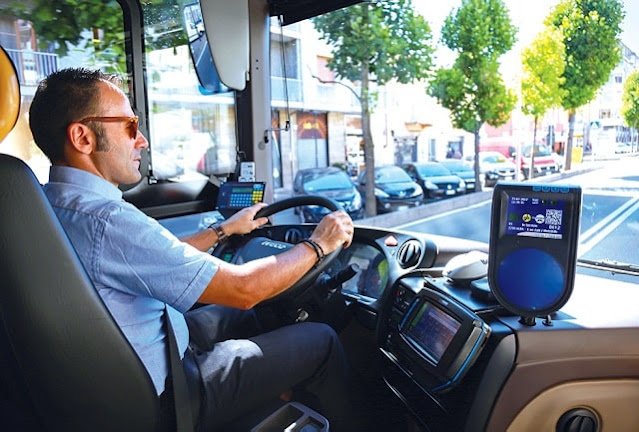The Metropolitan Transportation Authority (MTA) is the lifeline of New York City’s public transit system, operating one of the largest networks in the world. Within this system, train operators play a critical role in ensuring that millions of passengers are transported safely, punctually, and efficiently every day. Becoming an MTA Train Operator is not only a prestigious career but also a gateway to job stability, union representation, and excellent benefits. It is key to know what is required for the MTA Train Operator Exam Study.

However, before you can get behind the controls of a subway train, you must first pass the rigorous MTA Train Operator Exam. This civil service test is designed to evaluate your cognitive, mechanical, and situational reasoning skills to ensure you have what it takes to handle the responsibilities of the job.
This guide aims to provide a complete and in-depth look at how to study for the MTA Train Operator Exam, including what to expect, how to prepare, and how to maximise your chances of success.
Read Also: MTA Bus Operator Exam: Everything You Need to Know
Understanding the MTA Train Operator Exam Study
Exam Purpose and Eligibility
The MTA Train Operator Exam is part of the civil service entrance process for the position of Train Operator. The test ensures that all candidates meet the intellectual and psychological demands of the job. It is typically open to all individuals who meet basic eligibility criteria, and it is administered every few years depending on MTA’s hiring needs.
Exam Format and Structure
The exam is usually a computer-based multiple-choice test, consisting of approximately 80 to 100 questions. These questions assess various cognitive abilities such as:
- Reading comprehension
- Problem-solving
- Spatial awareness
- Memory and attention to detail
- Mechanical reasoning
Types of Questions
Expect to see the following types of questions:
- Reading comprehension: Understanding passages, diagrams, or schedules.
- Logical reasoning: Solving patterns, sequences, or logic puzzles.
- Memory-based tasks: Recalling symbols, numbers, or maps.
- Mechanical aptitude: Understanding gears, pulleys, and levers.
- Situational judgment: Handling customer service scenarios and conflicts.
Duration and Passing Score
The test typically lasts about 2 to 3 hours. The passing score is generally 70% or above, but scoring higher is crucial as candidates are ranked by score on a civil service list. The higher your score, the better your chances of being called for the next steps.
Exam Frequency and Registration
The exam is not offered annually. Candidates must monitor the MTA’s official job postings and the DCAS (Department of Citywide Administrative Services) website for exam announcements. Registration involves an application fee, usually around $68, and must be completed online.
Eligibility and Requirements to Sit for the Exam
Minimum Age and Education
To be eligible:
- You must be at least 21 years old.
- A high school diploma or GED is required.
Work Authorization
- You must be legally authorised to work in the U.S.
- Citizenship is not required, but a green card or other work authorisation is mandatory.
Driver’s License Requirements
A valid New York State Class B Commercial Driver License (CDL) with a passenger endorsement is often required.
Alternatively, you may begin the exam process while holding a learner’s permit and obtain the full license before training.
Read Also: MTA Police Exam: All You Should Know
Medical and Vision Standards
Colour vision is essential for interpreting signals.
A medical exam, including drug screening, will be conducted before employment.
Background Check and Drug Test
All applicants must pass a background check.
Drug and alcohol testing is required as the position falls under DOT safety-sensitive guidelines.
Key Subjects and Topics Covered
Reading Comprehension
Questions assess your ability to understand and interpret written information such as policies, technical instructions, and signage. Practice reading passages followed by multiple-choice questions.
Problem-Solving and Logical Reasoning
You’ll encounter number sequences, word problems, and pattern recognition. These test your ability to make logical deductions and mathematical calculations.
Spatial and Visual Reasoning
You’ll be tested on interpreting diagrams, understanding track layouts, and visualising how objects move or rotate.
Mechanical Aptitude
- Understanding simple mechanical concepts such as:
- Levers and pulleys
- Gear movements
- Energy transfer and friction
Memory and Attention to Detail
Tests may include:
- Memorising a map or chart and recalling details later
- Noting small differences between images
Map Reading and Route Familiarity
Operators must interpret maps quickly and correctly. You’ll need to identify routes, detours, and emergency exits.
Customer Service Orientation
Though not always a scored section, situational judgment tests gauge your ability to de-escalate conflicts, provide clear instructions, and demonstrate patience and professionalism.
Study Materials and Resources
Recommended Study Guides and Books
- Barron’s Civil Service Test Book
- Mometrix MTA Train Operator Study Guide
- Arco Mechanical Aptitude and Spatial Relations Tests
Official MTA Prep Materials
Check the MTA’s official website or the DCAS site for any candidate orientation guides or test samples.
Online Practice Exams and Sample Questions
- JobTestPrep (premium)
- Civil Service Success (paid and free options)
- Reddit forums and Facebook study groups
Mobile Apps
- Pocket Aptitude
- Train Operator Test Prep (iOS/Android)
Flashcards and Cheat Sheets
Create flashcards for:
- Mechanical concepts
- Map symbols
- Signal terminology
Study Plan: How to Prepare Efficiently
Creating a Study Plan
Break down your preparation time based on how soon the exam is scheduled:
- 90-day plan – Ideal for beginners
- 60-day plan – For those with some background
- 30-day plan – For repeat test takers
Daily and Weekly Goals
- Study 1–2 hours daily
- Rotate subjects each day
- Take one full practice exam weekly
Time Management Strategies
- Use timers for practice tests
- Eliminate distractions during study time
- Prioritise weaker subjects first
Study Schedule Examples
Week 1
- Day 1–2: Reading comprehension
- Days 3–4: Logical reasoning
- Days 5–6: Mechanical aptitude
- Day 7: Full-length practice test
Week 2
- Rotate subjects and begin memory exercises
- Add spatial and map reading drills
Practice and Mock Exams
Importance of Mock Exams
Simulating real test conditions will improve your timing, reduce anxiety, and highlight your weak spots.
Simulating Real Exam Experience
- Take practice tests on a computer
- Use a timer to mimic time constraints
- Avoid breaks between sections
Free vs Paid Platforms
Free
- DCAS orientation guides
- Sample tests on Reddit
Paid
- JobTestPrep
- Civil Service Success
Analysing Your Results
- Keep an error log
- Track repeated mistakes
- Review explanations thoroughly
Top Tips to Pass the MTA Train Operator Exam
1. Start early – Cramming won’t work for this exam.
2. Practice under timed conditions – Time management is crucial.
3. Focus on weak areas – Reinforce the subjects you struggle with.
4. Don’t ignore mechanical aptitude – It’s heavily weighted.
5. Use active recall and spaced repetition – Boosts memory retention.
6. Review errors consistently – Learn from your mistakes.
Physical and Psychological Preparation
Sleep and Nutrition Tips
- Sleep at least 7–8 hours before test day
- Eat a light, protein-rich meal
Mental Clarity and Focus Exercises
- Practice deep breathing and mindfulness.
- Avoid overstimulation (e.g., caffeine overdose)
Confidence-Building Techniques
- Positive affirmations
- Visualising success on test day
- Group study discussions
Relaxation Techniques
- Guided meditations
- Stretching or light exercise on the morning of the test
Exam Day: What to Expect
What to Bring
- Government-issued ID
- Confirmation email or test admission slip
- No electronic devices are allowed inside the testing room
Check-In and Test Centre Protocols
- Arrive at least 30 minutes early
- Follow security procedures
- Lockers may be provided for personal items
Time Management During the Test
- Don’t linger too long on hard questions
- Flag questions to return to later
Common Mistakes to Avoid
- Misreading instructions
- Failing to manage time
- Guessing without eliminating options
After the Exam
Score Release Timeline
- Typically, within 90–120 days
- Results posted on the DCAS website
What Happens If You Pass?
- You’ll be placed on a civil service eligibility list
- Candidates are called based on their score ranking
What Happens If You Fail?
- You can reapply for the next open exam
- Use feedback to improve performance
Next Steps Toward Employment
- Background investigation
- Drug testing and medical clearance
- Invitation to training school (if selected)
Additional Resources
Forums and Study Groups
- Reddit: r/MTA
- Facebook: MTA Train Operator Exam Study Group
- Discord communities
Contact Information
- MTA Career Portal: https://new.mta.info/careers
- NYC DCAS Exam Portal: https://a856-exams.nyc.gov/OASysWeb
Union and Employee Support
- TWU Local 100 (Transport Workers Union)
- New employee orientation resources
FAQs
Q1: How hard is the MTA Train Operator Exam? A: It can be challenging due to the diversity of topics and strict time limits, but proper preparation significantly improves success rates.
Q2: Can I take the exam more than once? A: Yes, but only when it is reopened. These opportunities occur every few years.
Q3: Is there a fee for the exam? A: Yes, usually around $68, though fee waivers may be available.
Q4: How do I apply after passing the exam? A: You will be contacted by the MTA based on your rank on the eligibility list. You do not need to reapply.
Conclusion
Studying for the MTA Train Operator Exam requires diligence, strategy, and a deep understanding of the test’s structure and content. With the right preparation materials, a solid study plan, and consistent practice, you can maximise your chances of success and embark on a rewarding career in public transportation. Remember, thousands apply, but only the best-prepared make the final cut. Start today, stay committed, and join the ranks of New York City’s elite train operators.

